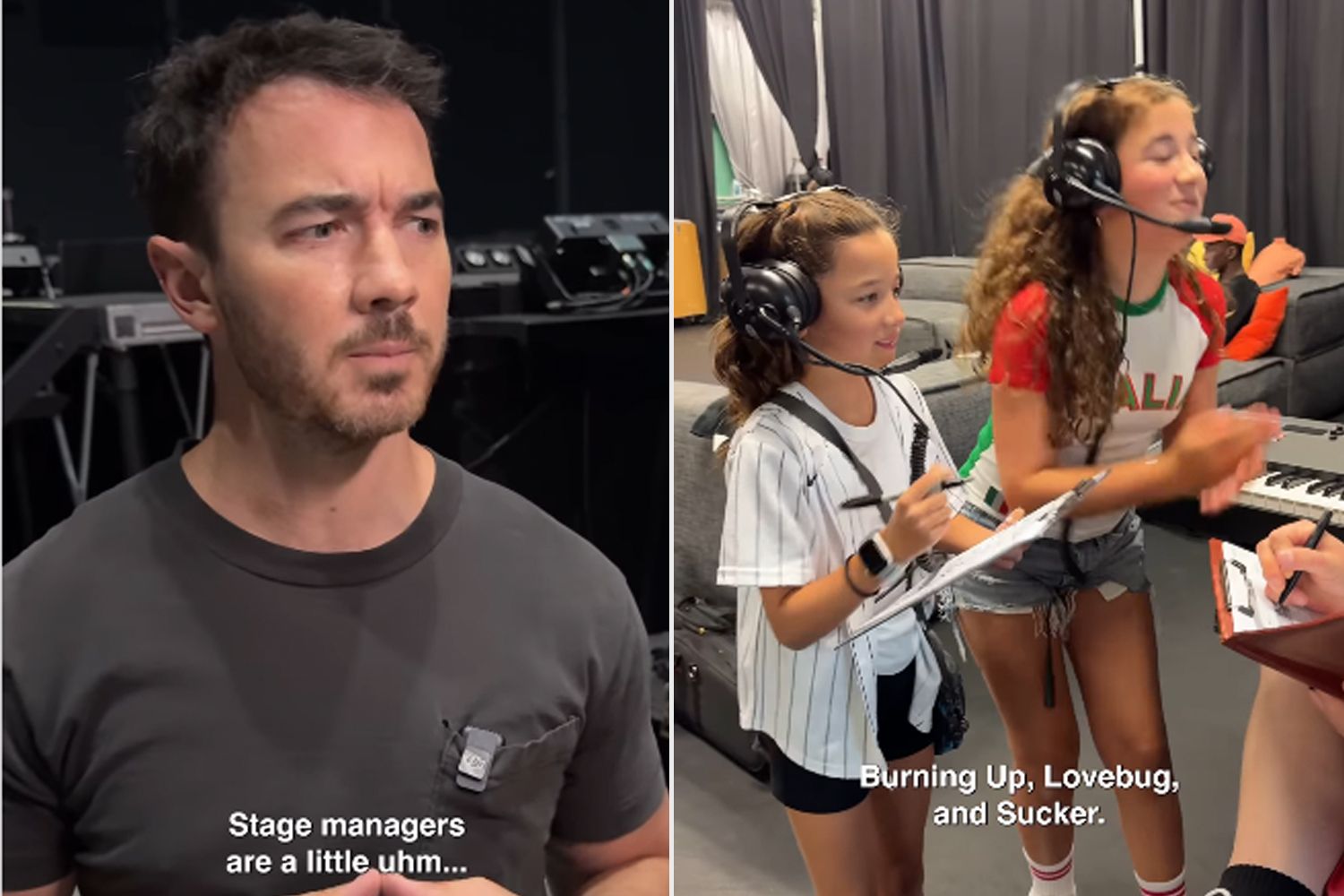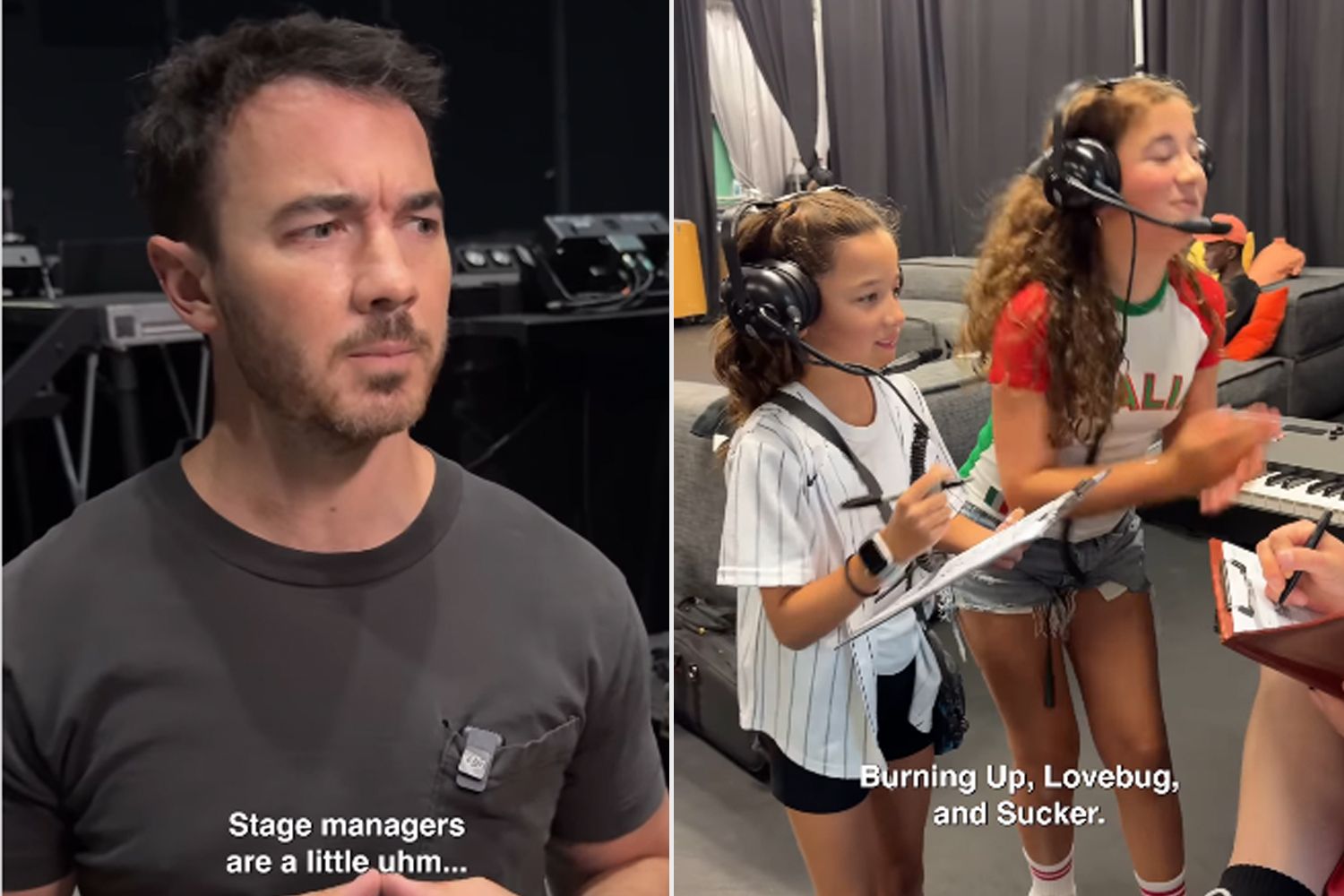What NOT To Say To Someone With Anxiety: Helpful Alternatives

Welcome to your ultimate source for breaking news, trending updates, and in-depth stories from around the world. Whether it's politics, technology, entertainment, sports, or lifestyle, we bring you real-time updates that keep you informed and ahead of the curve.
Our team works tirelessly to ensure you never miss a moment. From the latest developments in global events to the most talked-about topics on social media, our news platform is designed to deliver accurate and timely information, all in one place.
Stay in the know and join thousands of readers who trust us for reliable, up-to-date content. Explore our expertly curated articles and dive deeper into the stories that matter to you. Visit Best Website now and be part of the conversation. Don't miss out on the headlines that shape our world!
Table of Contents
What NOT to Say to Someone with Anxiety: Helpful Alternatives
Anxiety is a pervasive issue affecting millions, and understanding how to support those struggling is crucial. Often, well-intentioned individuals unintentionally worsen the situation with unhelpful phrases. This article explores common unhelpful statements and offers supportive alternatives, empowering you to provide genuine comfort and understanding. Learning the right approach can make a significant difference in someone's life.
What NOT to Say (and Why it's Harmful)
Many phrases, while seemingly innocuous, can invalidate a person's experience and increase their anxiety. Avoid these common pitfalls:
- "Just relax." or "Calm down.": These simplistic commands dismiss the complex nature of anxiety. It's not something someone can simply "turn off." It minimizes their struggles and places undue pressure on them.
- "Everyone feels anxious sometimes.": While true, this statement diminishes the severity of their condition. Chronic anxiety is different from occasional nervousness; comparing experiences invalidates their suffering.
- "You're overreacting." or "Don't be so dramatic.": This judgmental approach further isolates the individual and discourages them from seeking help. It invalidates their feelings and intensifies their self-doubt.
- "Think positive." or "Look on the bright side.": While positivity is important, demanding it from someone experiencing anxiety is unrealistic and unhelpful. It ignores the underlying emotional and physical distress.
- "Snap out of it.": This dismissive comment implies a lack of understanding and reinforces feelings of inadequacy and shame. Anxiety is a complex condition requiring empathy and support, not dismissal.
- "I know how you feel." (unless you genuinely do): Unless you've experienced similar levels of anxiety, avoid this. Empathizing without truly understanding can feel dismissive.
Helpful and Supportive Alternatives
Instead of minimizing their feelings, try these approaches:
- "I'm here for you. What can I do to help?": Offer practical support rather than empty platitudes. Active listening and a willingness to assist are crucial.
- "That sounds really challenging. I can imagine how difficult that must be.": Validate their feelings by acknowledging the difficulty of their experience. Empathy is key.
- "I'm worried about you. Is there anything you need right now?": Show genuine concern and offer practical assistance, such as helping with chores or running errands.
- "Anxiety can be really tough. Have you considered talking to a professional?": Gently suggest seeking professional help without pressure. Normalize therapy and encourage seeking support.
- "I'm here to listen, without judgment. Tell me what's going on.": Creating a safe and non-judgmental space is critical for someone experiencing anxiety.
- "What can I do to make you feel more comfortable right now?": Focus on offering tangible support and making their immediate situation more manageable.
Beyond Words: Actions Speak Louder
Beyond what you say, your actions are equally important:
- Offer practical help: Assist with everyday tasks, errands, or chores.
- Be patient and understanding: Anxiety takes time to manage.
- Encourage self-care: Suggest activities that promote relaxation and well-being, like exercise or mindfulness.
- Educate yourself: Learn more about anxiety and its various forms. [Link to a reputable resource on anxiety, e.g., the Anxiety & Depression Association of America (ADAA)].
Conclusion: Empathy and Understanding are Key
Dealing with someone experiencing anxiety requires sensitivity and genuine care. By avoiding unhelpful statements and employing empathetic responses, you can create a supportive environment that fosters healing and reduces the burden of anxiety. Remember, your understanding and support can make a world of difference. Learn more about supporting loved ones struggling with mental health challenges and find resources for effective communication. [Link to a relevant mental health resource website].

Thank you for visiting our website, your trusted source for the latest updates and in-depth coverage on What NOT To Say To Someone With Anxiety: Helpful Alternatives. We're committed to keeping you informed with timely and accurate information to meet your curiosity and needs.
If you have any questions, suggestions, or feedback, we'd love to hear from you. Your insights are valuable to us and help us improve to serve you better. Feel free to reach out through our contact page.
Don't forget to bookmark our website and check back regularly for the latest headlines and trending topics. See you next time, and thank you for being part of our growing community!
Featured Posts
-
 Deciphering The Mystery Wednesday Season 2s Part 1 Ending
Aug 08, 2025
Deciphering The Mystery Wednesday Season 2s Part 1 Ending
Aug 08, 2025 -
 Impact Des Transferts Sur Les Matchs De La Saison Wnba
Aug 08, 2025
Impact Des Transferts Sur Les Matchs De La Saison Wnba
Aug 08, 2025 -
 Behind The Scenes Kevin Jonas Daughters Unexpected Tour Roles
Aug 08, 2025
Behind The Scenes Kevin Jonas Daughters Unexpected Tour Roles
Aug 08, 2025 -
 Selena Gomez On Benny Blanco I Feel So Sure About Our Relationship
Aug 08, 2025
Selena Gomez On Benny Blanco I Feel So Sure About Our Relationship
Aug 08, 2025 -
 Who Sounds Alarm Us M Rna Vaccine Contract Terminations A Significant Blow To Global Vaccination Efforts
Aug 08, 2025
Who Sounds Alarm Us M Rna Vaccine Contract Terminations A Significant Blow To Global Vaccination Efforts
Aug 08, 2025
Latest Posts
-
 Arkansas Nurse Practitioner Emphasizes Timely Vaccination For Public Health
Aug 08, 2025
Arkansas Nurse Practitioner Emphasizes Timely Vaccination For Public Health
Aug 08, 2025 -
 Wnba 2024 Un Calendrier Charge De Matchs Et De Suspense
Aug 08, 2025
Wnba 2024 Un Calendrier Charge De Matchs Et De Suspense
Aug 08, 2025 -
 Arkansas Np Highlights Importance Of Staying Up To Date On Vaccinations
Aug 08, 2025
Arkansas Np Highlights Importance Of Staying Up To Date On Vaccinations
Aug 08, 2025 -
 Concerns Rise As Federal Government Cuts Funding For Crucial M Rna Research
Aug 08, 2025
Concerns Rise As Federal Government Cuts Funding For Crucial M Rna Research
Aug 08, 2025 -
 Kevin Jonas Kids Take Charge Behind The Scenes Tour Management
Aug 08, 2025
Kevin Jonas Kids Take Charge Behind The Scenes Tour Management
Aug 08, 2025
